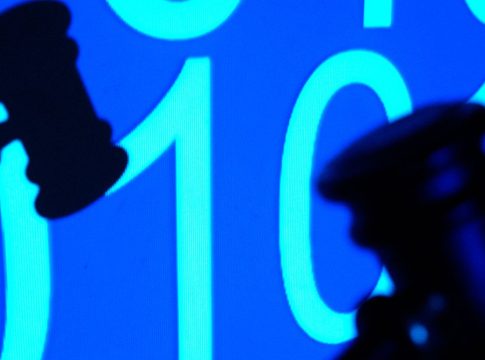Disney and Universal Sue Midjourney: A Battle Over AI and Copyright
In a significant legal move, Disney and Universal have launched a lawsuit against Midjourney, a San Francisco-based startup known for its AI image generation capabilities. The studios claim that the company operates as a “bottomless pit of plagiarism,” producing endless unauthorized reproductions of their intellectual property. This lawsuit marks a pivotal moment in the ongoing conflict between traditional media and emerging AI technologies, highlighting the complexities around creativity, ownership, and innovation.
Allegations and Key Evidence
The legal complaint presents a variety of images that allegedly illustrate how Midjourney’s AI can create outputs closely resembling iconic characters from Disney and Universal franchises. For example, one image reportedly shows Yoda from Star Wars wielding a lightsaber, created with the prompt “Yoda with lightsaber, IMAX.” Another example features a figure resembling the titular character from Universal’s The Boss Baby franchise, generated merely by entering “The Boss Baby” into the AI.
Intellectual property lawyer Chad Hummel emphasizes the weight of the evidence presented in the lawsuit, arguing that it raises serious questions about whether the outputs are truly "transformative"—a key criterion in the fair use defense.
Transformative or Theft?
As AI companies increasingly face scrutiny over copyright issues, Midjourney’s situation is unique. Unlike previous defendants, Disney and Universal are specifically contesting the outputs created by the model rather than just claiming misuse of their copyrighted materials. Legal expert Matthew Sag notes that this direct approach complicates Midjourney’s ability to argue fair use, as it will struggle to demonstrate that replicating iconic characters constitutes creative transformation.
Ignored Warnings
The lawsuit also reveals that Disney and Universal had requested Midjourney to implement safeguards against generating infringing materials but claim the company dismissed these requests. The studios assert that during its training process—where Midjourney scrapes vast amounts of data from the internet—copies of their copyrighted content were created intentionally.
Midjourney’s CEO David Holz has previously acknowledged the challenges of sourcing images legally, noting the lack of a copyright registry makes it difficult to ensure proper licensing.
A Cautionary Tale for AI Startups
This legal case highlights a growing tension within the tech industry as AI continues to advance rapidly. While Midjourney—and similar companies—promise to democratize creativity by making image generation accessible to all, the underlying issues of copyright infringement are becoming harder to ignore.
Disney’s general counsel, Horacio Gutierrez, captures this dilemma succinctly: “We are optimistic about how AI can enhance human creativity, but piracy is still piracy.” As the lawsuit unfolds, it sets a crucial precedent for how AI companies navigate the intricate web of copyrights while striving to innovate.
Looking Ahead
Whether Midjourney can prevail in this case—and how it will affect the broader landscape of AI development and intellectual property law—remains to be seen. This lawsuit could signal a new chapter in the ongoing dialogue between traditional creative industries and cutting-edge technology, forcing AI startups to reconsider their practices and policies moving forward. As this legal fray continues, the implications for business and society are profound and far-reaching.

Writes about personal finance, side hustles, gadgets, and tech innovation.
Bio: Priya specializes in making complex financial and tech topics easy to digest, with experience in fintech and consumer reviews.

